
Tangier: The Gateway to Africa
Tangier sits at the crossroads of Europe and Africa, where the Atlantic Ocean meets the Mediterranean Sea. This Moroccan city is a melting pot of cultures, languages, and traditions. With its rich history and vibrant atmosphere, Tangier has long been a haven for artists, writers, and travelers alike. Stroll through the maze-like streets of the old medina to discover bustling markets, historic mosques, and charming riads. The medina's narrow alleys are filled with the aroma of spices, the sound of local musicians, and the sight of colorful fabrics. The Kasbah Museum, housed in a former sultan's palace, offers a glimpse into Tangier's storied past. Tangier's beaches are another highlight. Relax on the sandy shores of Plage Municipale or take a short drive to the stunning Cap Spartel, where the waters of the Atlantic and Mediterranean converge. For a panoramic view of the city, head to the ancient Phoenician tombs on Marshan Hill. The city’s modern side is just as captivating. The Grand Socco, a lively square at the entrance of the medina, is a great spot to people-watch and soak in the local atmosphere. Nearby, the American Legation Museum, the first American public property outside the United States, showcases the unique relationship between Morocco and America. Tangier's culinary scene is not to be missed. Savor fresh seafood at a seaside café, or indulge in traditional Moroccan dishes like tagine and couscous at a local restaurant. As night falls, the city’s nightlife comes alive with a mix of trendy bars, traditional music venues, and lively nightclubs.
Local tips in Tangier
- Wear comfortable walking shoes to navigate the medina's narrow, cobbled streets.
- Visit the Kasbah Museum early in the morning to avoid the crowds.
- Take a day trip to the nearby town of Asilah, known for its whitewashed buildings and art festivals.
- Learn a few basic Arabic or French phrases to enhance your interactions with locals.
- Haggle politely but firmly in the markets to get the best prices.
- Enjoy fresh mint tea at a café for a traditional Moroccan experience.
Neighbourhoods in Tangier
Tangier: The Gateway to Africa
Tangier sits at the crossroads of Europe and Africa, where the Atlantic Ocean meets the Mediterranean Sea. This Moroccan city is a melting pot of cultures, languages, and traditions. With its rich history and vibrant atmosphere, Tangier has long been a haven for artists, writers, and travelers alike. Stroll through the maze-like streets of the old medina to discover bustling markets, historic mosques, and charming riads. The medina's narrow alleys are filled with the aroma of spices, the sound of local musicians, and the sight of colorful fabrics. The Kasbah Museum, housed in a former sultan's palace, offers a glimpse into Tangier's storied past. Tangier's beaches are another highlight. Relax on the sandy shores of Plage Municipale or take a short drive to the stunning Cap Spartel, where the waters of the Atlantic and Mediterranean converge. For a panoramic view of the city, head to the ancient Phoenician tombs on Marshan Hill. The city’s modern side is just as captivating. The Grand Socco, a lively square at the entrance of the medina, is a great spot to people-watch and soak in the local atmosphere. Nearby, the American Legation Museum, the first American public property outside the United States, showcases the unique relationship between Morocco and America. Tangier's culinary scene is not to be missed. Savor fresh seafood at a seaside café, or indulge in traditional Moroccan dishes like tagine and couscous at a local restaurant. As night falls, the city’s nightlife comes alive with a mix of trendy bars, traditional music venues, and lively nightclubs.
When is the best time to go to Tangier?
Iconic landmarks you can’t miss
Hercules Caves
Discover the enchanting Hercules Caves near Tangier, where natural beauty meets historical intrigue along the stunning Atlantic coast.
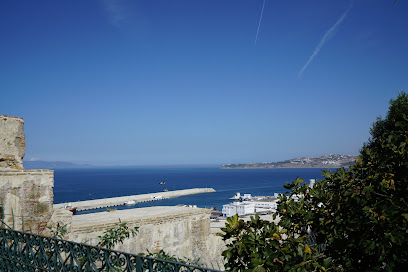
Grand Socco
Explore Grand Socco, the vibrant heart of Tangier, where culture, history, and local life blend seamlessly in a captivating Moroccan experience.
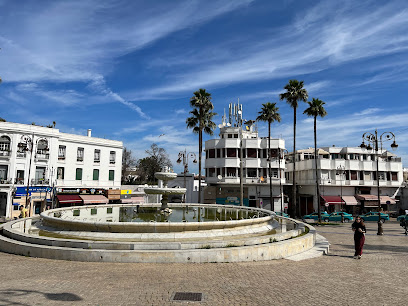
Tanja Marina Bay
Experience the allure of Tanja Marina Bay, where stunning views, vibrant culture, and Mediterranean charm converge in the heart of Tangier.
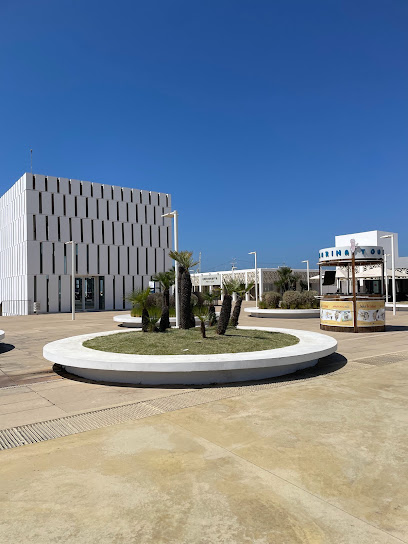
Mnar Park
Experience the tranquility and beauty of Mnar Park, a serene recreation center in Tangier, Morocco, perfect for relaxation and cultural exploration.
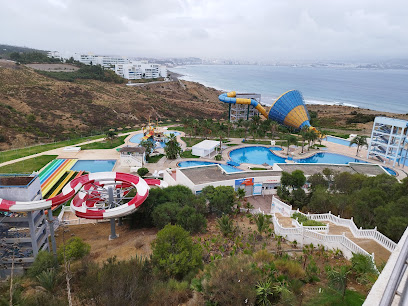
Villa Harris Park
Experience the vibrant beauty of Villa Harris Park in Tangier, a serene escape with lush gardens and stunning Mediterranean views.
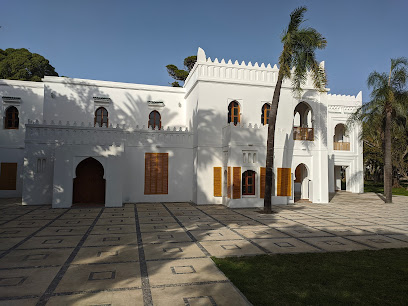
Mosque Mohammed V
Explore the grandeur of Mosque Mohammed V in Tangier, a captivating blend of history, architecture, and spirituality in the heart of Morocco.
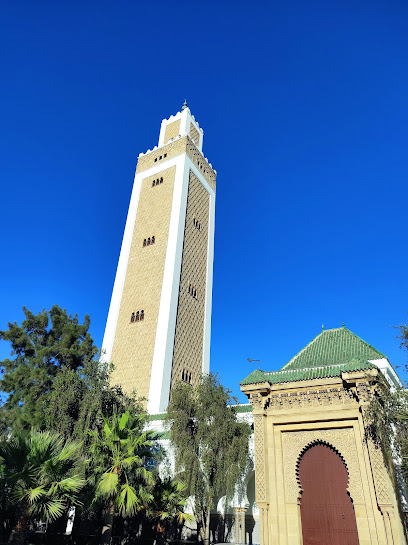
Bab Al Bahr
Experience the historic allure of Bab Al Bahr in Tangier, where the Atlantic and Mediterranean Seas merge in a breathtaking coastal spectacle.
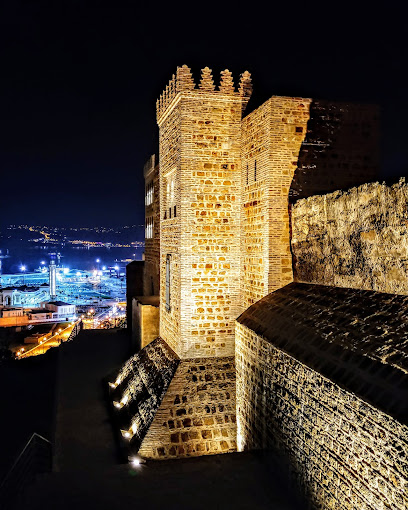
Kasbah Museum
Explore the Kasbah Museum in Tangier for a captivating journey through Moroccan history and culture amidst stunning architecture and vibrant exhibits.
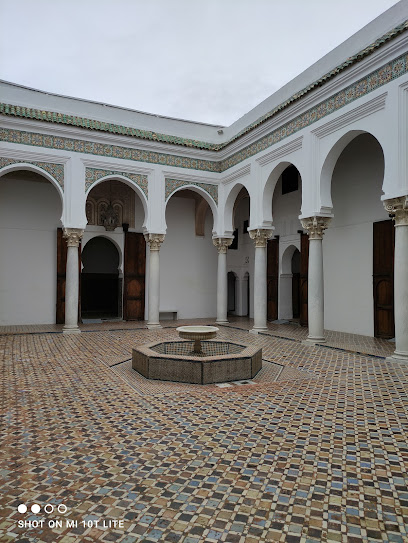
Plaza de Toros
Discover the Plaza de Toros in Tangier, a historical landmark that reveals the city's vibrant culture and architectural beauty, a must-visit for every traveler.
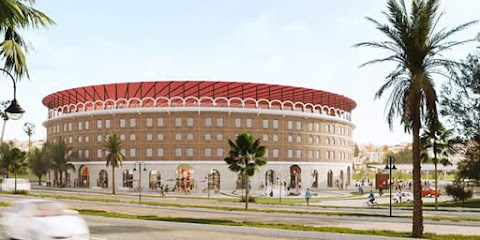
Tangier American Legation Museum
Discover the historical significance and cultural richness of the Tangier American Legation Museum, a unique blend of art and diplomacy in Morocco.
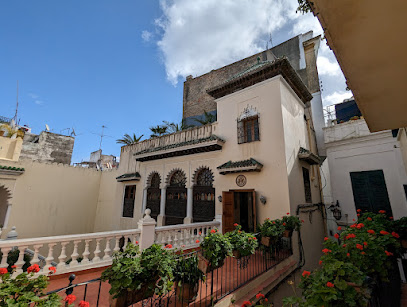
Rmilat Park
Experience the natural beauty of Rmilat Park in Tangier, a serene escape with breathtaking views and lush landscapes perfect for relaxation.
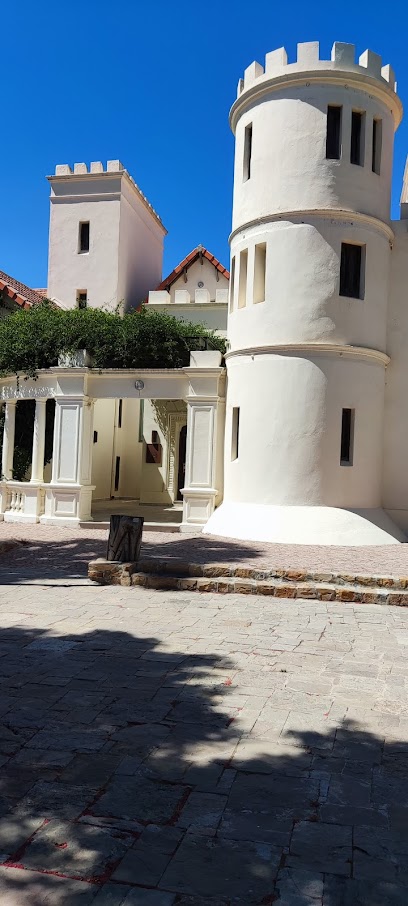
Tombeaux Phéniciens
Explore the Tombeaux Phéniciens in Tangier, a remarkable historical landmark revealing the ancient Phoenician heritage and breathtaking Mediterranean views.
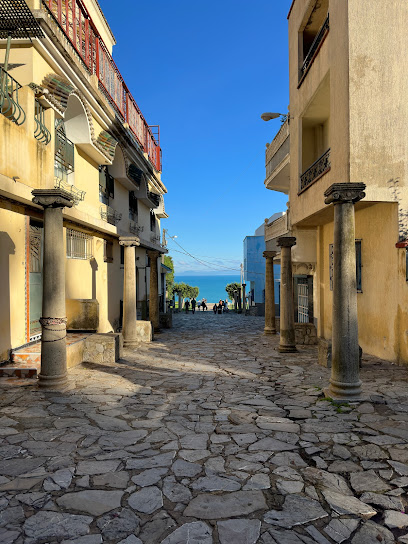
Merkala Beach
Experience the allure of Merkala Beach in Tangier, where golden sands and crystal-clear waters meet vibrant culture and adventure.
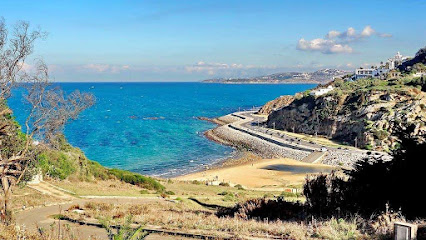
Mendoubia Garden
Discover the serene beauty of Mendoubia Garden in Tangier, a lush oasis that offers stunning views, cultural charm, and a peaceful escape from the city bustle.
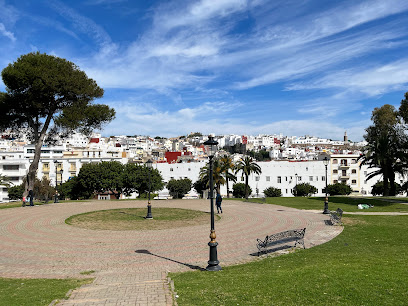
Plage Ba Kacem
Discover the tranquil beauty of Plage Ba Kacem, a serene beach in Tangier perfect for relaxation, swimming, and savoring local flavors.
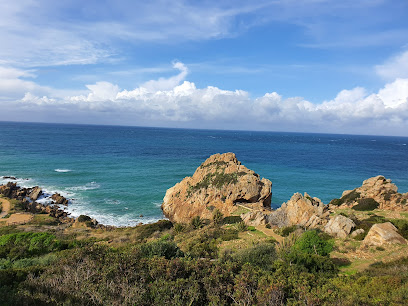
Unmissable attractions to see
Baelo Claudia
Explore Baelo Claudia, an ancient Roman city with stunning ruins and breathtaking coastal views in the heart of Cádiz, Spain.
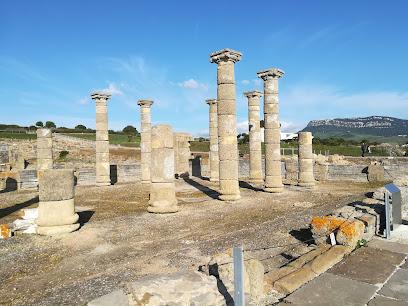
Hercules Caves
Explore the enchanting Hercules Caves in Tangier, Morocco, where breathtaking natural beauty meets rich historical legends.
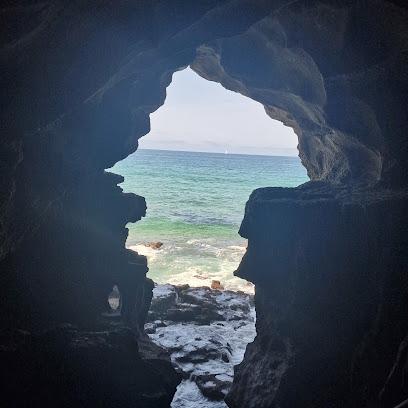
Grand Socco
Experience the vibrant atmosphere and rich history at Grand Socco, Tangier's bustling cultural hub and gateway to the medina.
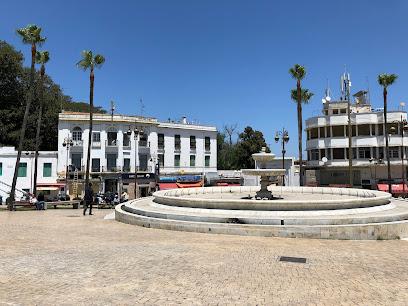
Rmilat Park
Explore Rmilat Park in Tangier, a beautiful coastal escape ideal for relaxation, picnics, and enjoying stunning sea views.
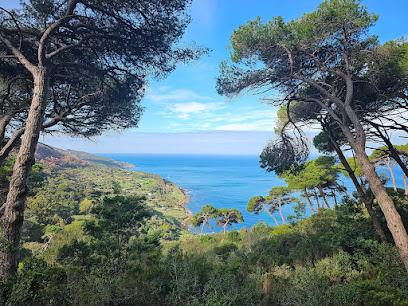
Bolonia Beach
Experience the unspoiled beauty and rich history of Bolonia Beach, a tranquil oasis on Spain's southern coast, perfect for relaxation and exploration.
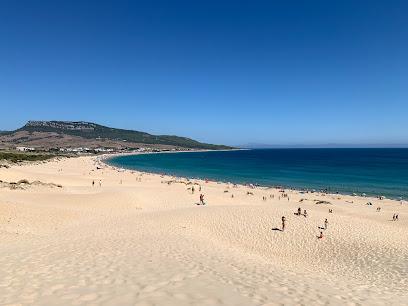
Villa Harris Park
Experience the beauty and tranquility of Villa Harris Park in Tangier, a serene escape filled with lush greenery and stunning views, perfect for relaxation.
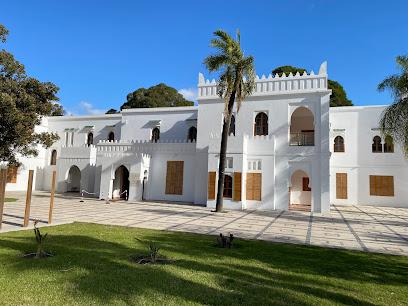
Kasbah Museum
Explore the Kasbah Museum in Tangier for a deep dive into Morocco's cultural heritage through fascinating artifacts and stunning architecture.
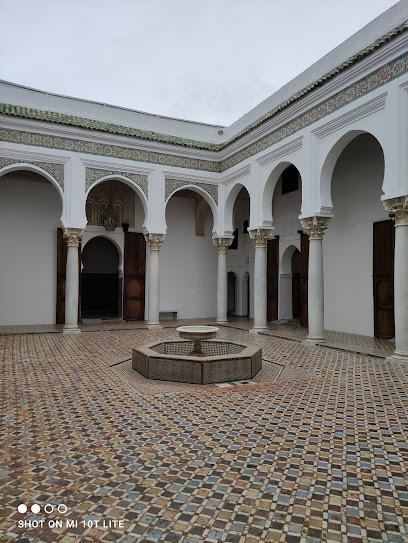
Tourist Complex Smir Park
Explore Smir Park in M'diq: A serene paradise for leisure, family fun, and stunning Mediterranean views.
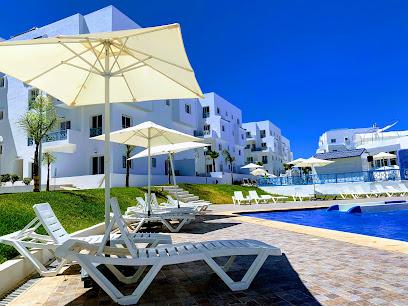
Tangier American Legation Museum
Explore the Tangier American Legation Museum and immerse yourself in the rich tapestry of American-Moroccan history and culture.
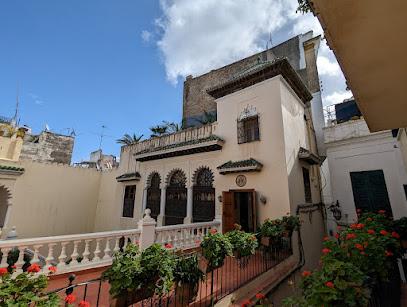
Place Moulay El Mehdi
Explore the vibrant heart of Tetouan at Place Moulay El Mehdi, a cultural hub filled with history, architecture, and local delights.
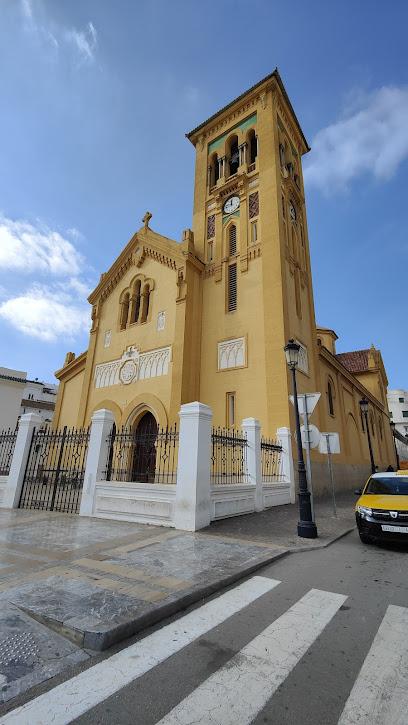
Cinéma Rif
Experience the charm of Cinéma Rif, an iconic movie theater in Tangier offering a unique blend of classic and contemporary films in a historic setting.
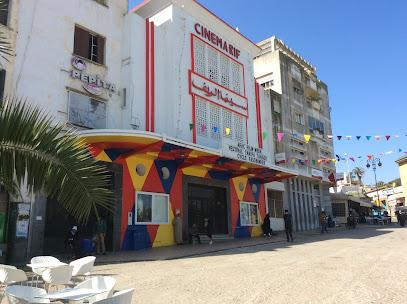
Playa de Zahara
Discover the breathtaking Playa de Zahara in Cádiz, a perfect blend of sun, sand, and local culture along the stunning Andalusian coast.
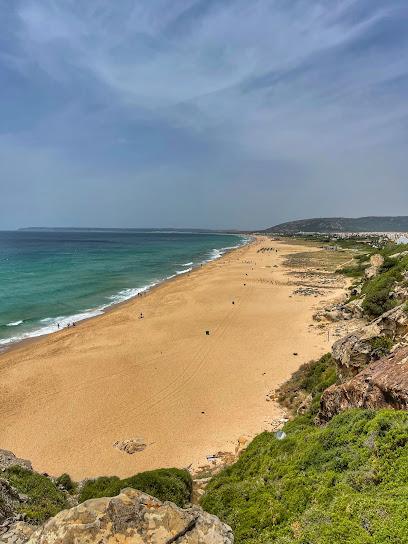
Merkala Beach
Experience the beauty and culture of Merkala Beach in Tangier, a perfect blend of relaxation, adventure, and authentic Moroccan charm.
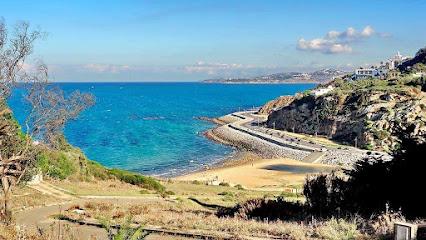
Feddan Park
Explore Feddan Park in Tetouan, a lush green escape filled with vibrant culture, beautiful landscapes, and the perfect spot for relaxation.
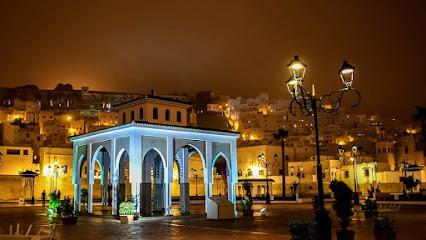
Signpost of Atlantic & Mediterranean
Experience the breathtaking beauty of the Signpost of Atlantic & Mediterranean in Tangier, where the Atlantic meets the Mediterranean in stunning harmony.
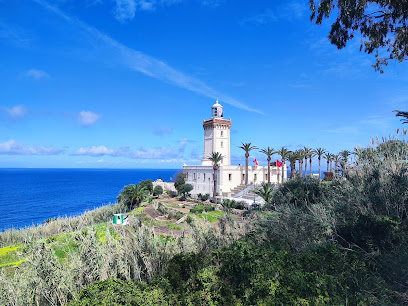
Essential places to dine
El Tangerino
Experience the vibrant flavors of Spain at El Tangerino in Tangier - where culinary tradition meets modern flair.
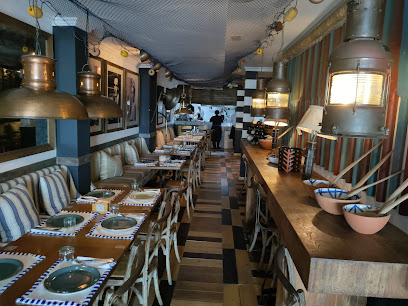
Restaurant Ahlen
Experience authentic Moroccan flavors at Restaurant Ahlen in Tangier's historic Ancien Medina.
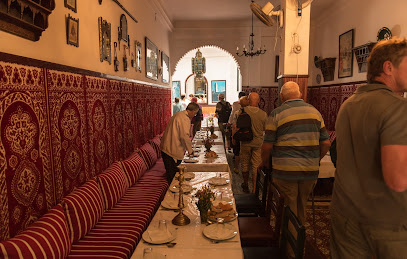
Woods Café-Restaurant
Experience exquisite dining at Woods Café-Restaurant in Tangier, where local flavors meet international cuisine in a cozy atmosphere.
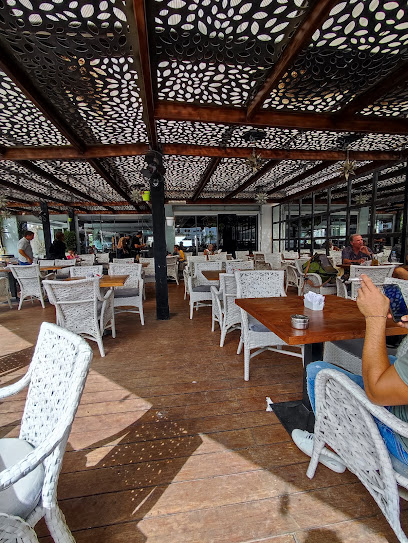
Kebdani Restaurant
Experience authentic Moroccan cuisine at Kebdani Restaurant in Tangier's historic Ancien Medina, where every meal is a journey through flavors.
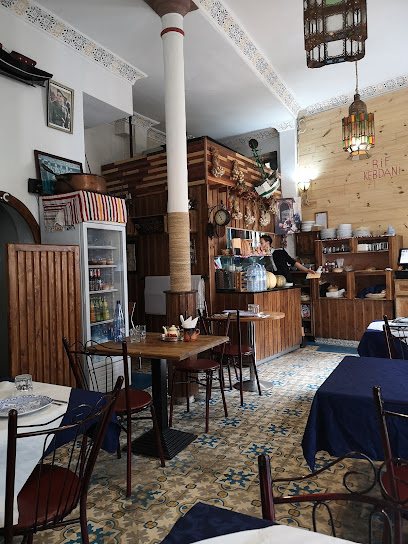
Restaurant Saveur de Poisson
Discover the vibrant flavors of Moroccan seafood at Restaurant Saveur de Poisson in Tangier - a culinary journey awaits you.
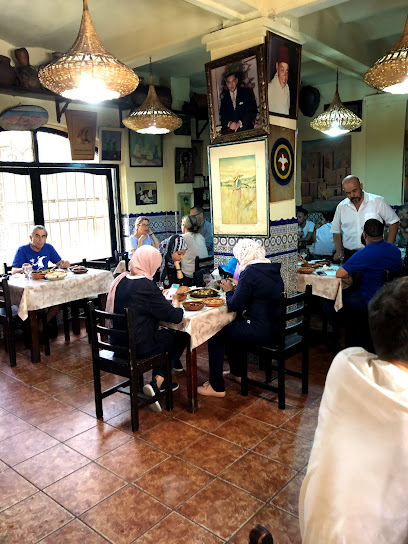
Al Achab
Experience the finest seafood delicacies at Al Achab in Tangier - where tradition meets freshness by the sea.
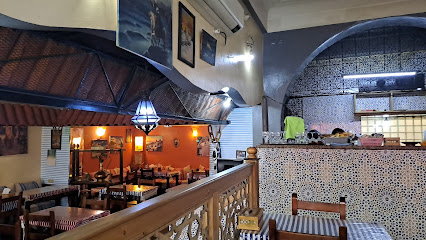
Restaurant Al Maimouni
Experience authentic Moroccan cuisine at Restaurant Al Maimouni in Tangier’s vibrant Ancien Medina - where tradition meets flavor.
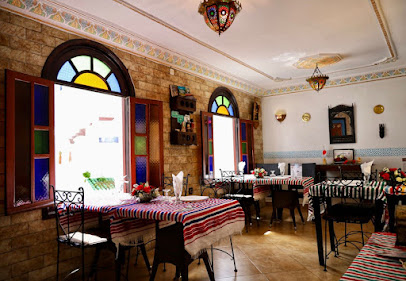
La Fuga
Discover authentic Moroccan cuisine at La Fuga in Tangier - where every dish tells a story.
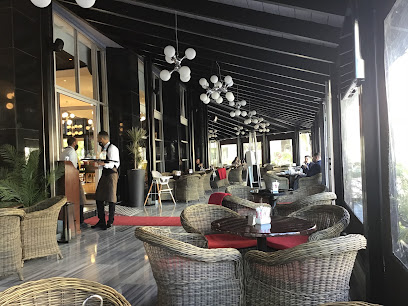
La Table du Marché
Experience exquisite Moroccan cuisine at La Table du Marché in Tangier's Marina Bay—where every meal is a celebration of flavor and culture.
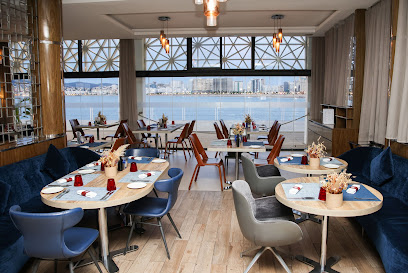
Abou Tayssir
Experience the rich flavors of Syria at Abou Tayssir in Tangier – a delightful restaurant offering authentic dishes in a cozy atmosphere.
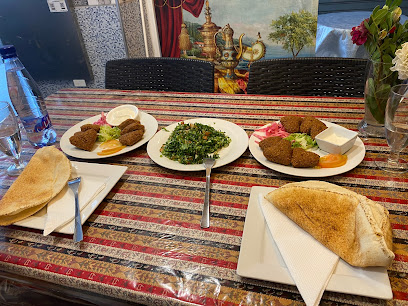
Chez Hassan - Bab Kasbah
Experience authentic Moroccan cuisine at Chez Hassan - Bab Kasbah in Tangier's historic district, where every dish tells a story.
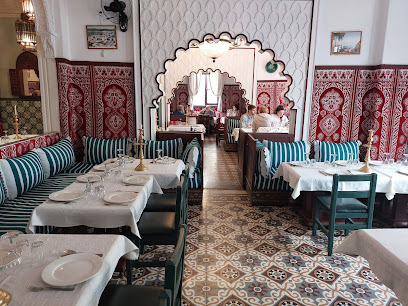
Restaurant Ali Baba
Discover authentic Lebanese flavors at Restaurant Ali Baba in Tangier - A delightful culinary escape offering exquisite dishes and warm hospitality.
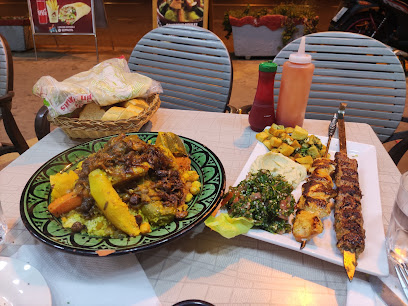
El Morocco Club
Discover El Morocco Club in Tangier - where exquisite Moroccan cuisine meets enchanting live music in a charming setting.
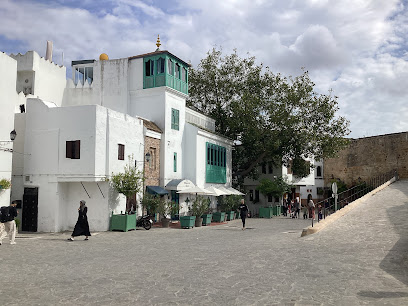
L'Océan
Experience exquisite Moroccan cuisine with breathtaking ocean views at L'Océan in Tangier's beautiful coastal setting.
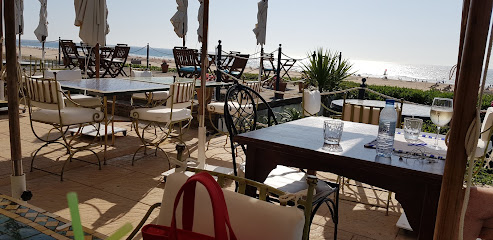
Dar Naji
Experience the rich flavors of Moroccan cuisine at Dar Naji in Tangier—a must-visit restaurant for food lovers!
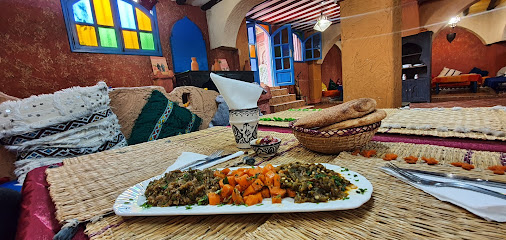
Markets, malls and hidden boutiques
Tanger City Center
Discover a shopping oasis in Tangier at Tanger City Center, where fashion, food, and fun await in a vibrant atmosphere.
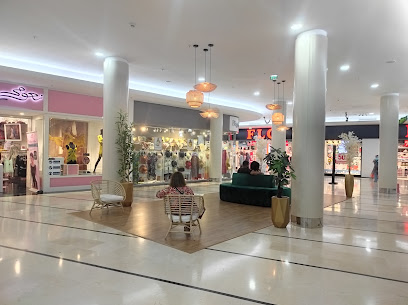
Rebajas Tanger
Discover unique Moroccan gifts at Rebajas Tanger, where creativity and craftsmanship blend to create unforgettable souvenirs.
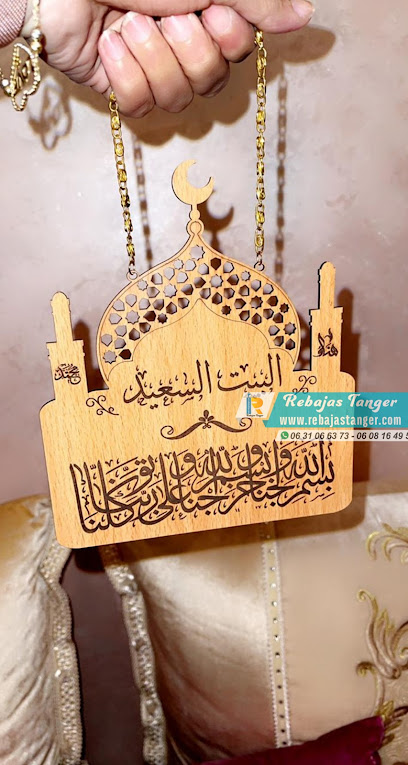
Boutique Majid
Explore the enchanting world of antiques at Boutique Majid in Tangier's historic Ancien Medina, where culture and craftsmanship come together.
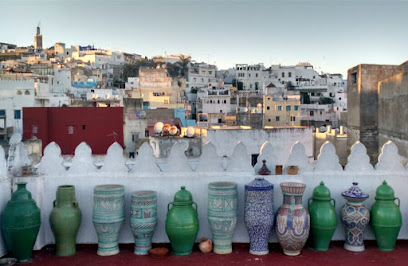
Trésor du Nord
Explore Trésor du Nord in Tangier for authentic Moroccan crafts, spices, and a warm cultural experience, perfect for every traveler.
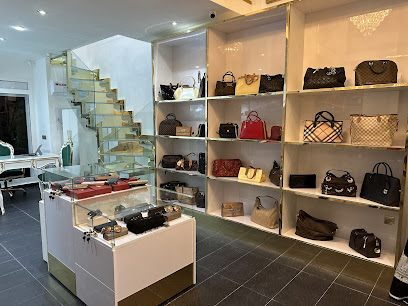
Tanger Shop
Experience the vibrant fashion scene at Tanger Shop in Tangier, where Moroccan tradition meets modern style for an unforgettable shopping adventure.
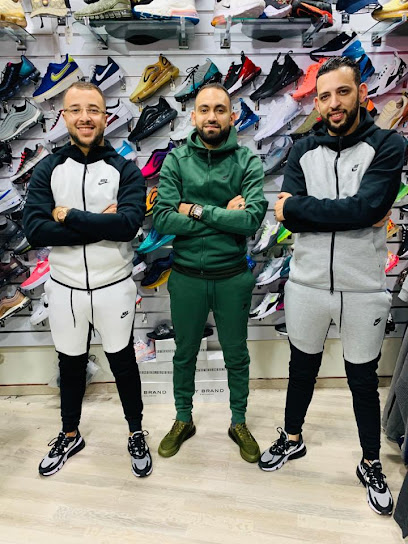
Original Brand
Explore Original Brand in Tangier for a unique selection of authentic Moroccan clothing that captures the vibrant essence of the city.

Bazar Mehdi Roussi
Discover unique gifts and traditional musical instruments at Bazar Mehdi Roussi, the heart of Tangier's artistic heritage.
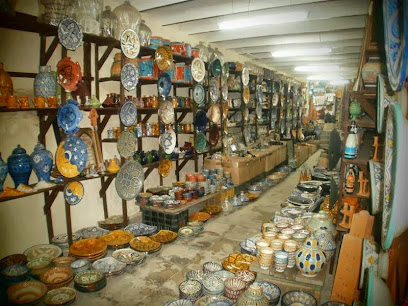
Fondouk Chejra
Discover the charm of traditional Moroccan textiles at Fondouk Chejra, a unique clothing store in Tangier that celebrates local craftsmanship.
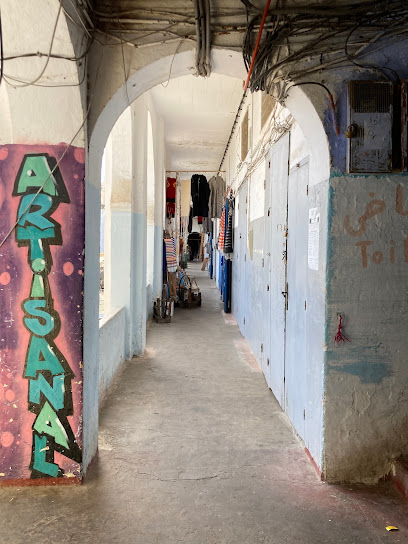
New Tangier
Explore New Tangier for unique local crafts and souvenirs in the heart of the enchanting Marshan district.
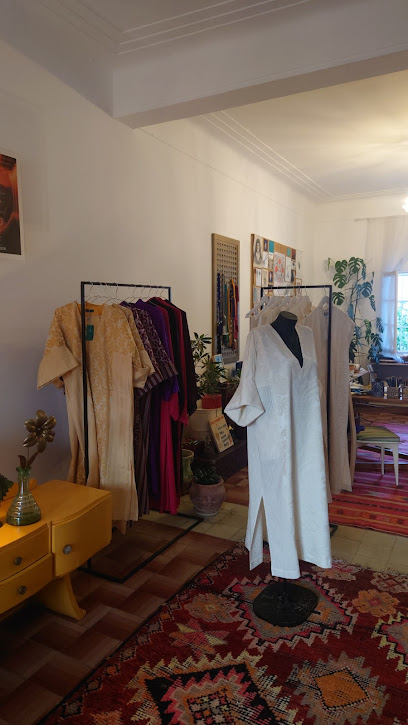
Bazar Tanger
Explore the essence of Moroccan culture at Bazar Tanger, where unique souvenirs and local craftsmanship come together in the heart of Tangier's Ancien Medina.
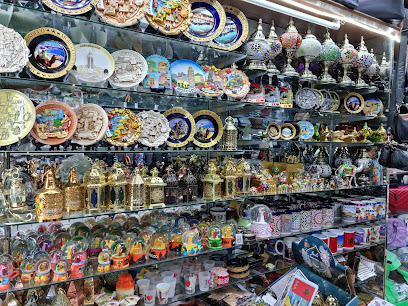
Norte Shop Sport
Discover contemporary fashion and local style at Norte Shop Sport in Tangier, where quality meets affordability for every traveler.

Galerie Tindouf
Explore a treasure trove of Moroccan history at Galerie Tindouf, Tangier's premier antique store filled with unique artifacts and cultural gems.
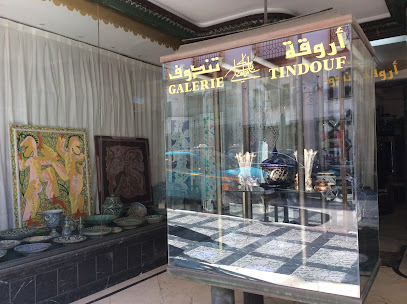
سوق الجملة
Explore the exquisite craftsmanship of jewelry at سوق الجملة, a vibrant market experience in Tangier that reflects Morocco's rich cultural heritage.

Shop taous
Discover the perfect blend of traditional Moroccan and modern fashion at Shop Taous, a women's clothing store in the heart of Tangier.
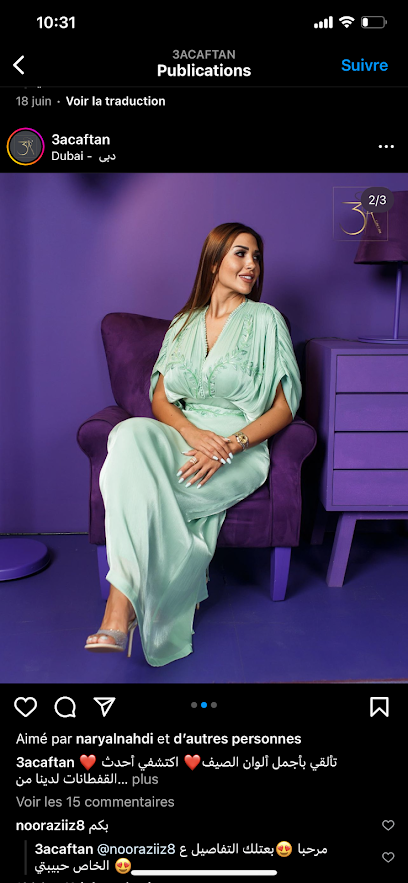
NASSERCHOP
Explore NASSERCHOP in Tangier, your go-to gift shop for authentic Moroccan souvenirs and unique handcrafted treasures.
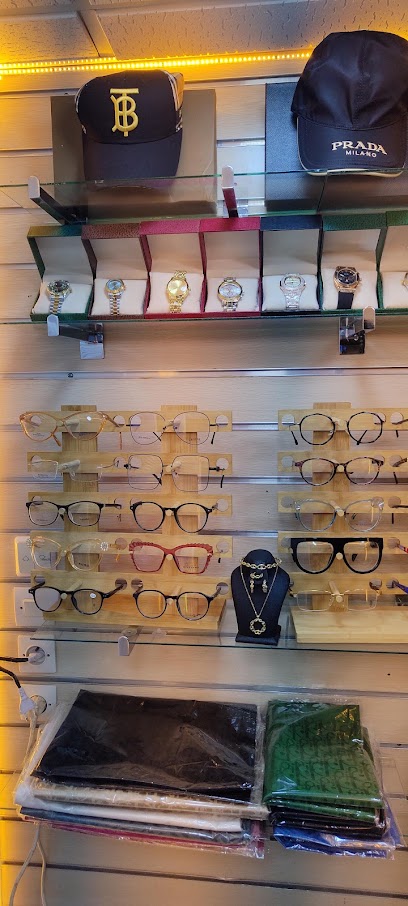
Essential bars & hidden hideouts
Blue Pub
Experience the vibrant nightlife at Blue Pub in Tangier, where exquisite dining meets electrifying entertainment in a stylish lounge atmosphere.
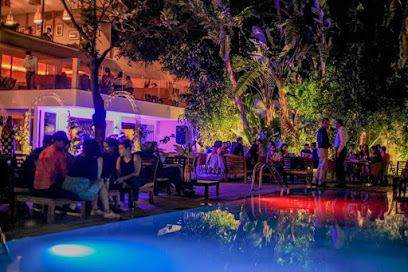
Londons pub
Discover the lively atmosphere and delicious cuisine at Londons Pub in Tangier, where local flavors meet international charm.
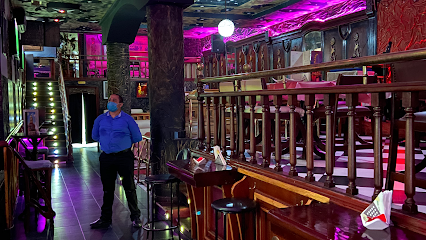
Number One
Discover the lively ambiance and extensive drink menu at Number One, Tangier's top bar, perfect for mingling and relaxation.
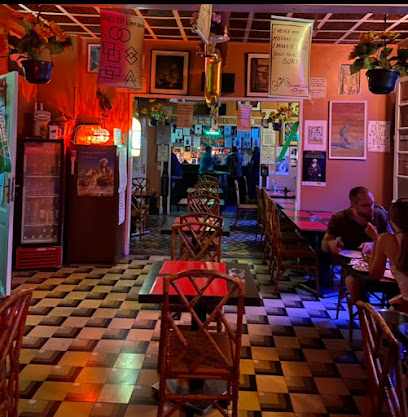
Sky 5
Experience the vibrant nightlife of Tangier at Sky 5, the ultimate lounge in Marina Bay offering stunning views and a chic atmosphere.
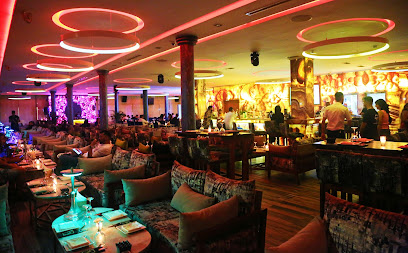
Pub Carrousel
Discover the vibrant nightlife at Pub Carrousel, a lively bar in Tangier offering a delightful selection of drinks and a welcoming atmosphere.
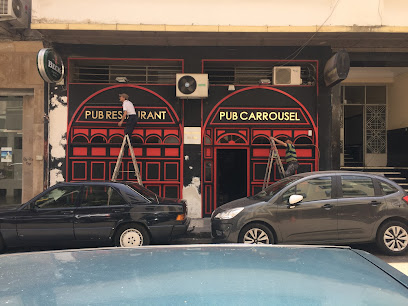
Chico’s
Discover the vibrant flavors of Morocco at Chico’s, a tapas bar and pub in Tangier that promises a delightful dining experience.
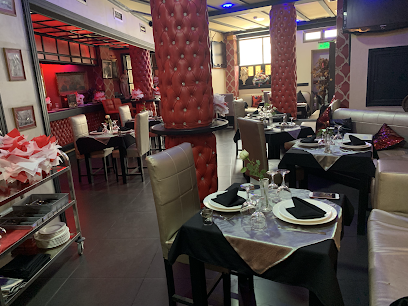
Tangerinn
Experience the vibrant nightlife of Tangier at Tangerinn, a lively bar offering a unique blend of local culture and social atmosphere.
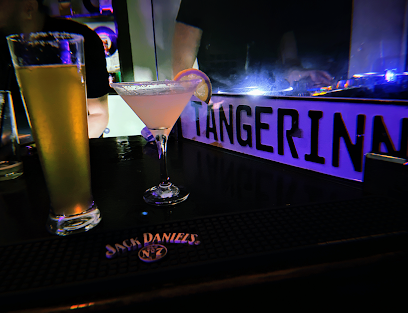
English Pub
Discover the essence of British pub culture in Tangier at this charming English Pub, offering delightful drinks and traditional fare.
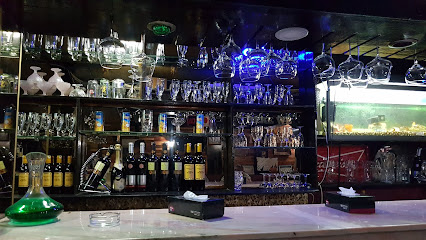
Hole in the Wall Bar
Experience the lively local nightlife at Hole in the Wall Bar in Tangier, where warm vibes and delicious drinks await every visitor.
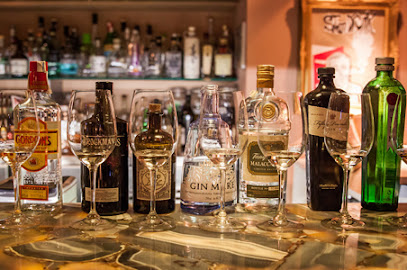
Radio Bar
Discover the vibrant nightlife of Tangier at Radio Bar, where cocktails, live music, and Moroccan hospitality create an unforgettable experience.
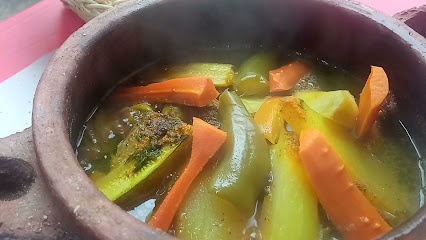
Le Nyx Piano Bar
Discover the charm of Tangier at Le Nyx Piano Bar, where live music and exquisite drinks create an unforgettable experience.

Caid's Bar
Caid's Bar: A vibrant bar in Tangier offering a unique blend of Moroccan hospitality and international flair for a memorable night out.
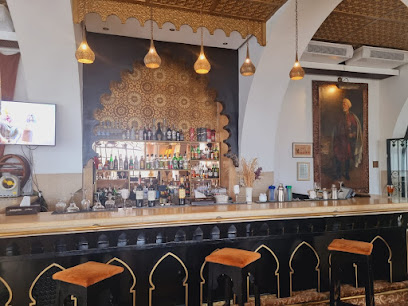
R.J’s Irish Pub
Discover the charm of R.J's Irish Pub in Tangier, where Irish hospitality meets Moroccan vibrancy, offering a perfect retreat for travelers.
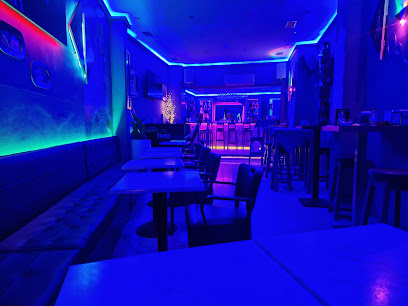
Frensh Bar chicha
Experience the vibrant atmosphere of Frensh Bar Chicha in Tangier - a perfect blend of Moroccan hospitality and relaxation.
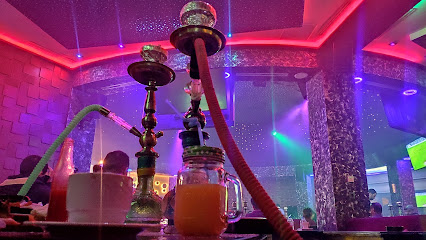
KAS'BAR
Explore the vibrant nightlife of Tangier at KAS'BAR, where traditional Moroccan charm meets modern relaxation and stunning views.
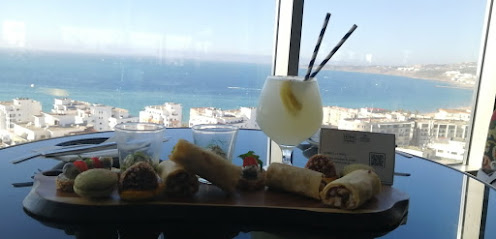
Local Phrases
-
- Helloسلام
[salaam] - Goodbyeوداعا
[wadaa'an] - Yesنعم
[naam] - Noلا
[laa] - Please/You're welcomeمن فضلك
[min fadlik] - Thank youشكرا
[shukran] - Excuse me/Sorryعذرا
[aathiraa] - How are you?كيف حالك؟
[kayf haalak?] - Fine. And you?بخير. وأنت؟
[bikhayr. wa'ant?] - Do you speak English?هل تتحدث الإنجليزية؟
[hal tatahadath al'injlizia?] - I don't understandأنا لا أفهم
[ana la afham]
- Helloسلام
-
- I'd like to see the menu, pleaseأريد أن أرى القائمة، من فضلك
[uriid an araa alqaima, min fadlik] - I don't eat meatأنا لا آكل اللحم
[ana la aakul allahm] - Cheers!في صحتك!
[fi sahtak!] - I would like to pay, pleaseأريد أن أدفع، من فضلك
[uriid an adfa', min fadlik]
- I'd like to see the menu, pleaseأريد أن أرى القائمة، من فضلك
-
- Help!النجدة!
[alnajda!] - Go away!ارحل!
[irhal!] - Call the Police!اتصل بالشرطة!
[itassal bialshurta!] - Call a doctor!اتصل بطبيب!
[itassal bata'ib!] - I'm lostلقد ضللت الطريق
[laqad dalelt altariq] - I'm illأنا مريض
[ana mareed]
- Help!النجدة!
-
- I'd like to buy...أريد أن أشتري...
[uriid an ashtari...] - I'm just lookingأنا فقط أتفرج
[ana faqat atfarij] - How much is it?كم ثمنه؟
[kam thamanuh?] - That's too expensiveهذا غالي جدا
[hatha ghali jiddan] - Can you lower the price?هل يمكنك خفض السعر؟
[hal yumkinuka khafd alsaeer?]
- I'd like to buy...أريد أن أشتري...
-
- What time is it?كم الساعة؟
[kam alsaa'a?] - It's one o'clockالساعة الواحدة
[alsaa'at alwahidah] - Half past (10)النصف بعد العاشرة
[alnusf ba'd aleashirah] - Morningالصباح
[alsabah] - Afternoonالمساء
[almasa'] - Eveningالمساء
[almasa'] - Yesterdayأمس
[ams] - Todayاليوم
[alyawm] - Tomorrowغدا
[ghadan] - 1واحد
[wahid] - 2اثنان
[ithnan] - 3ثلاثة
[thalatha] - 4أربعة
[arba'a] - 5خمسة
[khamsa] - 6ستة
[sitta] - 7سبعة
[sab'a] - 8ثمانية
[thamania] - 9تسعة
[tis'ah] - 10عشرة
[asharah]
- What time is it?كم الساعة؟
-
- Where's a/the...?أين هو/هي...؟
[ayn huwa/hiya...?] - What's the address?ما هو العنوان؟
[ma huwa al'anaan?] - Can you show me (on the map)?هل يمكنك أن تريني (على الخريطة)؟
[hal yumkinuka an tureeni (ala alkhareeta)?] - When's the next (bus)?متى يأتي الحافلة التالية؟
[mata yaati alhaafila altaliyah?] - A ticket (to ....)تذكرة (إلى ...)
[tadhkira (ila ...)]
- Where's a/the...?أين هو/هي...؟
History of Tangier
-
Tangier's history dates back to the 5th century BC when it was first established as a Phoenician trading post. Later, it became part of the Carthaginian Empire. By the 1st century BC, Tangier was under Roman rule and known as Tingis, serving as a significant commercial hub in the Roman province of Mauretania Tingitana.
-
Tangier became a major Islamic city in the 7th century when it was conquered by the Umayyad Caliphate. It played a crucial role in the Islamic expansion into the Iberian Peninsula, serving as a departure point for the Muslim invasion of Spain in 711 AD, led by General Tariq ibn Ziyad.
-
In the 15th century, Tangier fell under Portuguese control after the conquest of Ceuta in 1415. The city was later handed over to Spain in 1580 as part of the Iberian Union. The Portuguese and Spanish influences left a lasting mark on the city’s architecture and fortifications.
-
In 1661, Tangier was gifted to England as part of the dowry of Catherine of Braganza when she married King Charles II. The British invested heavily in the city’s defenses but eventually abandoned it in 1684 due to persistent attacks from local tribes. In the early 20th century, Tangier became an International Zone, governed by multiple European powers, which lasted until Morocco gained independence in 1956.
-
During the 20th century, Tangier became a haven for artists, writers, and expatriates. The city’s unique status as an International Zone attracted a diverse population, including famous figures like Paul Bowles, William S. Burroughs, and Henri Matisse. This period left a rich cultural legacy that continues to influence the city today.
-
Since Morocco’s independence in 1956, Tangier has grown into a bustling metropolis while retaining its historical charm. Modern infrastructure and economic development have transformed Tangier into a major port city and cultural center, yet its medina, kasbah, and colonial-era buildings ensure that the city's storied past remains ever-present.
Tangier Essentials
-
Tangier is accessible via several modes of transportation. The Ibn Battuta Airport (TNG) is located approximately 12 kilometers from the city center and receives flights from major European cities and domestic flights from within Morocco. You can also reach Tangier by ferry from Spain; ferries operate regularly from Algeciras, Tarifa, and Barcelona, docking at the Port of Tangier Ville. Additionally, Tangier is well-connected by train, with the high-speed Al Boraq train linking it to major cities like Casablanca and Rabat.
-
Tangier has a variety of transportation options. Petit taxis (small blue taxis) are widely available for short distances within the city and are metered. For longer distances, grand taxis (usually white) are available and can be shared. The city also has an extensive bus network operated by ALSA, covering most areas of interest. For a unique experience, consider taking the Tangier-Casablanca high-speed train, which provides a fast and scenic journey along the coast. Car rentals are also an option for those looking to explore the surrounding areas independently.
-
The official currency in Morocco is the Moroccan Dirham (MAD). Credit and debit cards are widely accepted in hotels, restaurants, and larger stores, but it is advisable to carry cash for smaller establishments and markets. ATMs are plentiful in Tangier, especially in the city center and tourist areas. Currency exchange services are available at the airport, banks, and exchange bureaus. It is recommended to have some dirhams on hand upon arrival for immediate expenses.
-
Tangier is generally a safe city for tourists, but it is wise to exercise standard precautions. Avoid walking alone at night in unfamiliar areas, and be cautious of pickpockets in crowded places like the medina. The neighborhoods of Boukhalef and Benkirane have reported higher crime rates, so it is advisable to be vigilant if visiting these areas. Stick to well-lit and populated areas and always keep an eye on your belongings.
-
In case of emergency, dial 19 for police assistance and 15 for medical emergencies. The main hospital in Tangier is the Centre Hospitalier Régional Mohammed V, which provides emergency medical care. It is advisable to have travel insurance that covers medical emergencies. For minor health issues, pharmacies are widely available across the city and can provide over-the-counter medications.
-
Fashion: Do dress modestly, especially when visiting religious sites. Avoid wearing revealing clothing. Religion: Do respect local customs and traditions. Always remove your shoes and cover your head when entering mosques. Public Transport: Do be respectful and courteous. Don't eat or drink on public transport. Greetings: Do greet people with a handshake. Men and women may greet with a kiss on each cheek, but it is best to follow the local's lead. Eating & Drinking: Do try local delicacies and accept food offerings graciously. Don't refuse hospitality, as it is considered impolite.
-
To experience Tangier like a local, visit the Petit Socco in the medina, where you can enjoy a coffee and people-watch. Try to engage with locals; they are often friendly and willing to share stories about the city's history and culture. Don't miss the chance to visit the Kasbah Museum for a glimpse into Tangier's rich past. For a unique experience, take a walk along the Corniche at sunset for stunning views of the Strait of Gibraltar. Also, explore the local markets (souks) for fresh produce and traditional Moroccan goods.
Nearby Cities to Tangier
-
Things To Do in Asilah
-
Things To Do in Tetouan
-
Things To Do in Europa Point
-
Things To Do in Gorham's Cave Complex
-
Things To Do in Queensway Quay Marina
-
Things To Do in St. Michael's Cave
-
Things To Do in Alameda Botanic Gardens
-
Things To Do in Main Street
-
Things To Do in Gibraltar
-
Things To Do in Casemates Square
-
Things To Do in Moorish Castle
-
Things To Do in Catalan Bay
-
Things To Do in Chefchaouen
-
Things To Do in Cádiz
-
Things To Do in Ronda


















